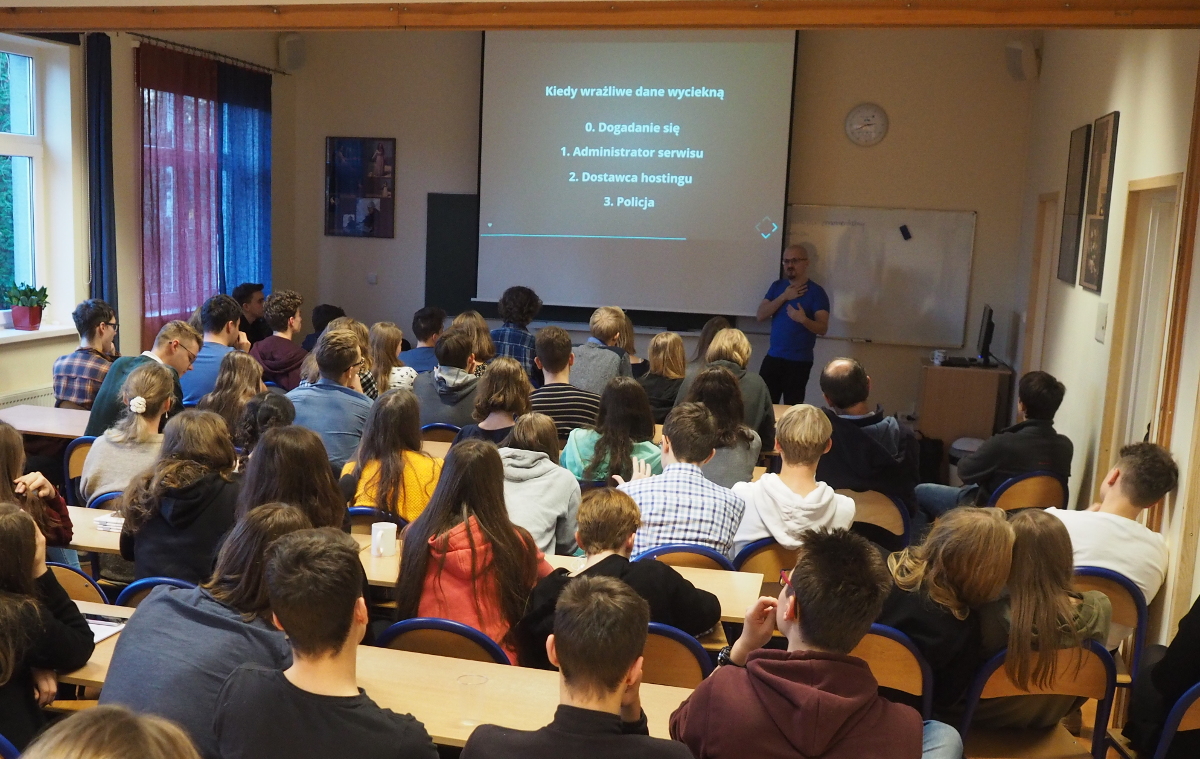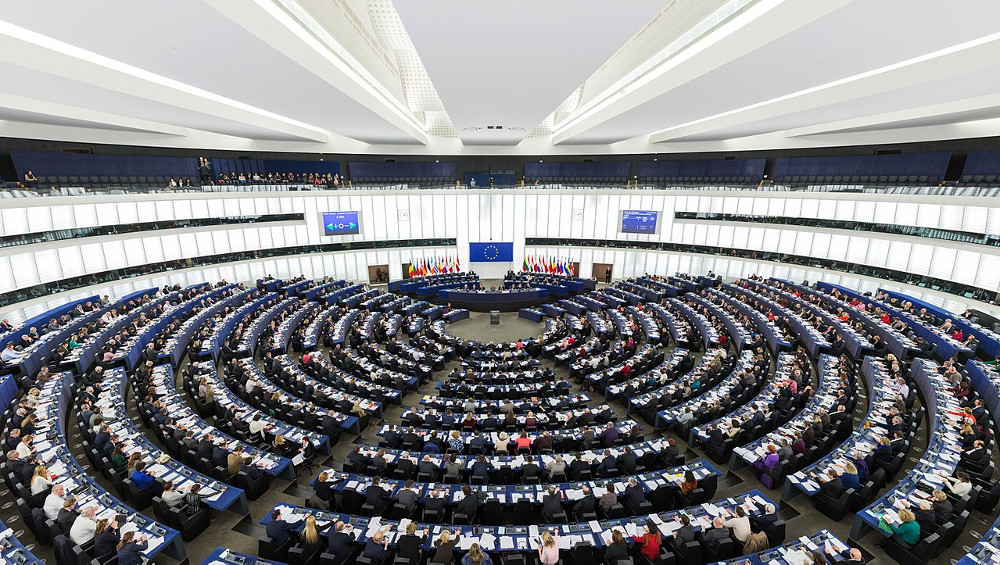Cryptoparty: wykłady z cyberbezpieczeństwa w 2018
Posted on Thu 03 January 2019 in misc
Od pięciu lat prowadzę w Polsce darmowe wykłady z podstaw cyberbezpieczeństwa dla gimnazjów, liceów i grup zainteresowanych. Jest to temat niezwykle istotny we współczesnym świecie, a którego bardzo ciężko się nauczyć bez odpowiednich źródeł. Wielu dorosłych opuściło szkołę bez możliwości zrozumienia jak dbać o swoje bezpieczeństwo w Sieci, a młodzież nie zawsze ma dostęp do wiedzy znajdującej się poza podstawą programową.

Rok 2018 był szczególnie owocny jeżeli chodzi o Cryptoparty: udało mi się poprowadzić je w liceach i gimnazjach w Gliwicach, Warszawie, podwarszawskich Wołominie i Milanówku oraz online dla uczniów z nauczaniem indywidualnym.
Ankieta po zajęciach w Społecznym Liceum Ogólnokształcącym nr 5 w Milanówku przyniosła też bardzo duży postęp: aż 90.2% uczniów biorących udział w wykładzie zadeklarowało, że będzie teraz znacznie bardziej ostrożnych korzystając z Internetu! Kolejne 68.3% uczestników wyraziło chęć udziału w zajęciach praktycznych, co jest świetnym wynikiem jak na klasę bez profilu informatycznego. Jak pisze anonimowo jeden z uczniów:
Podchodząc do zajęć spodziewałem się trywialnych porad mówiących o zaufaniu do innych internautów i udostępnianiu informacji. Zdecydowanie można było odczuć, że pan …
Continue reading


